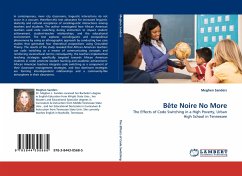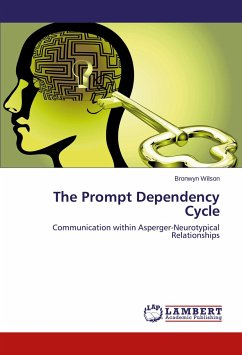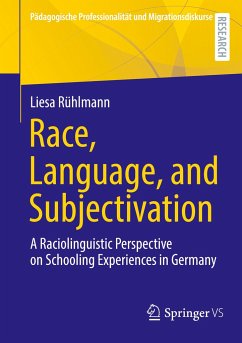
Bête Noire No More
The Effects of Code Switching in a High Poverty, Urban High School in Tennessee
Versandkostenfrei!
Versandfertig in 6-10 Tagen
32,99 €
inkl. MwSt.

PAYBACK Punkte
16 °P sammeln!
In contemporary, inner city classrooms, linguistic interactions do not occur in a vacuum; therefore,this text advocates for increased linguistic dexterity and cultural acceptance of sociolinguistic interactions among teachers and students. The author investigated how African American teachers used code switching during instruction to impact student achievement, student-teacher relationships, and the educational environment. The text explores sociolinguistic and sociopolitical phenomena by using an ethnographic approach by conducting two case studies that generated four theoretical propositions...
In contemporary, inner city classrooms, linguistic interactions do not occur in a vacuum; therefore,this text advocates for increased linguistic dexterity and cultural acceptance of sociolinguistic interactions among teachers and students. The author investigated how African American teachers used code switching during instruction to impact student achievement, student-teacher relationships, and the educational environment. The text explores sociolinguistic and sociopolitical phenomena by using an ethnographic approach by conducting two case studies that generated four theoretical propositions using Grounded Theory. The results of the study revealed that African American teachers use code switching as a means of communicating concepts and reinforcing sociocultural norms; consequently, the teachers implemented teaching strategies specifically targeted towards African American students in order promote student learning and academic achievement. African American teachers integrate code switching as a component of their classroom management strategies, and two dominant strategies are forming interdependent relationships and a community-like atmosphere in their classrooms.












